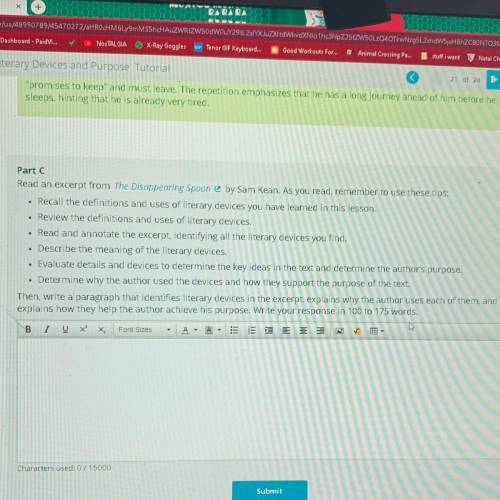From Precious to Productive
excerpt from The Disappearing Spoon
by Sam Kean
Ounce by ou...

English, 25.11.2020 01:00 jademckinziemea
From Precious to Productive
excerpt from The Disappearing Spoon
by Sam Kean
Ounce by ounce, the most valuable element, among the elements you can actually buy, is rhodium (element 45). (That's why, to
trump a mere platinum record, the Guinness Book of Records gave former Beatle Paul McCartney a disc made of rhodium in 1979 to
celebrate his becoming the bestselling musician of all time.) But no one ever made more money more quickly with an element on
the periodic table than the American chemist Charles Hall did with aluminium (element 13).
Because of its shininess, aluminium was once classified as a precious metal, like silver or platinum (element78), worth hundreds of
dollars an ounce. In the mid-1800s, a Frenchman figured out how to extract the metal for industry, making aluminium available
commercially. For a price. It was still more expensive than even gold. That's because, despite being the most common metal in the
Earth's crust-around 8 percent of it by weight, hundreds of millions of times more common than gold-aluminium never appears
in its pure form. It's always bonded to something else, usually oxygen. Pure samples were considered miracles.
The French once displayed aluminium bars next to their crown jewels, and Emperor Napoleon III reserved a prized set of aluminium
cutlery for special guests at banquets. (Less-favored guests used gold knives and forks.) In the United States, government engineers,
to show off their country's industrial achievements, capped the Washington Monument with a six-pound pyramid of aluminium
in 1884.
Aluminium's sixty-year reign as the world's most precious metal was glorious, but soon an American chemist ruined everything. The
metal's properties-light, strong, attractive--and the fact that there is so much of it in the Earth's crust, had people pretty excited.
But no one could figure out an easy way to separate it from oxygen. That was until a student at Oberlin College in Ohio named
Charles Hall solved the problem.
Hall worked on separating aluminium throughout his undergraduate years at Oberlin. He falled and failed and failed again, but
failed a little more smartly each time. Finally, in 1986, Hall ran an electric current from handmade batteries (power lines didn't exist)
through a liquid with dissolved aluminium compounds. The energy from the current separated the pure metal from the oxygen
which collected as tiny silver-colored nuggets on the bottom of the tank. The process was cheap and easy, and it would work just as


Answers: 1


Another question on English

English, 21.06.2019 21:00
Which sentence contains correct capitalization? in “the rime of the ancient mariner,” the albatross was initially an omen of good luck. in “the rime of the ancient mariner,” the albatross was initially an omen of good luck.
Answers: 1

English, 21.06.2019 22:00
What is the metaphor used for captain beatty? what is he being compared to?
Answers: 1

English, 22.06.2019 00:20
Explain how advancements in technology have affected the diversity of our news, how we receive it, and how it is portrayed by the media.
Answers: 1

English, 22.06.2019 02:30
What attitude of the aristocracy is illustrated by lady bracknell's lines in the play?
Answers: 1
You know the right answer?
Questions


Mathematics, 25.11.2019 01:31

Health, 25.11.2019 01:31







Chemistry, 25.11.2019 01:31

Mathematics, 25.11.2019 01:31

History, 25.11.2019 01:31


Geography, 25.11.2019 01:31




Biology, 25.11.2019 01:31





